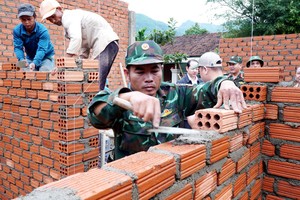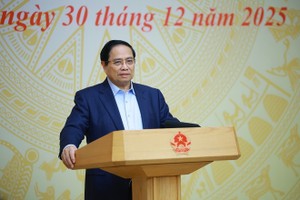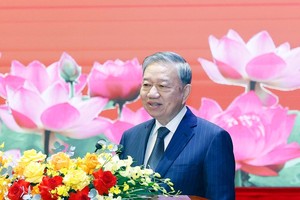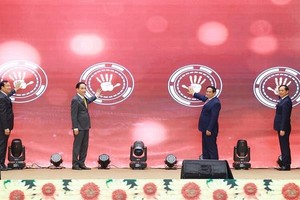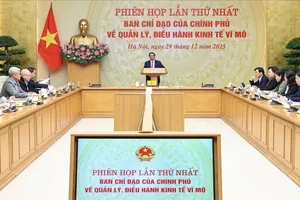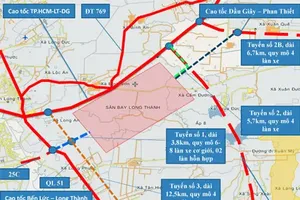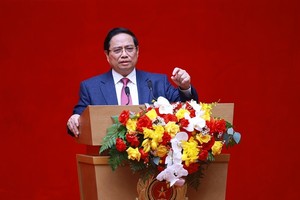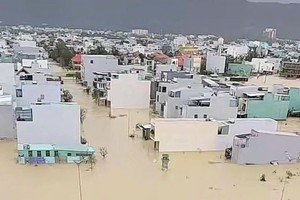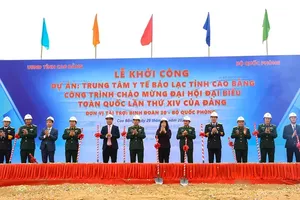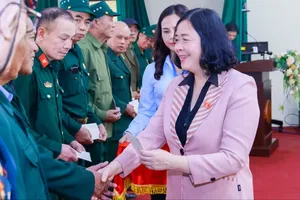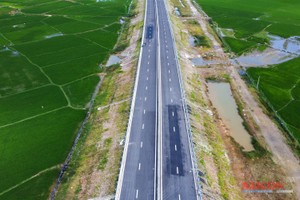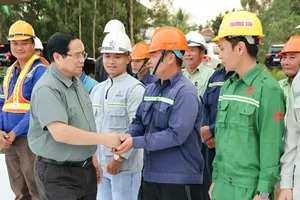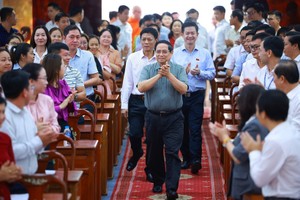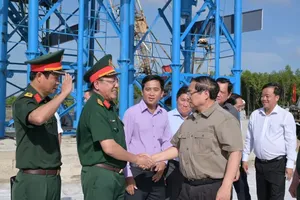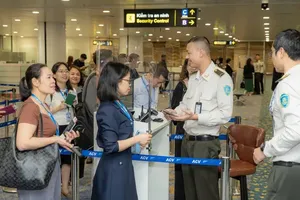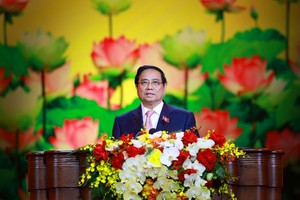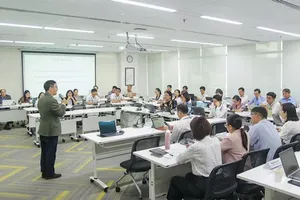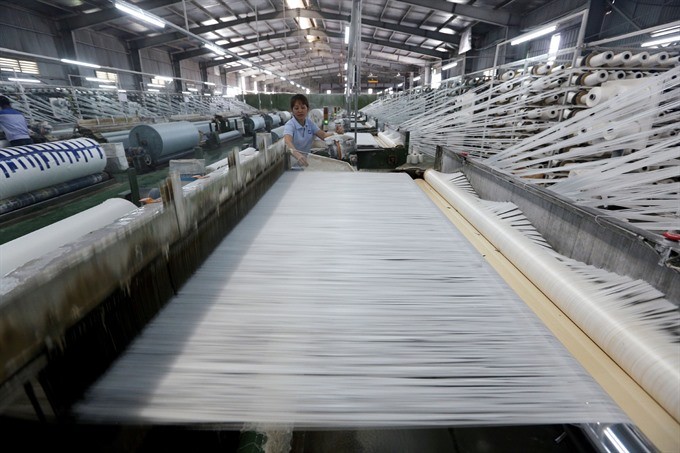
The conference was held between the Government and localities.
The PM called for the promotion of individual responsibilities, especially among heads of departments, building measurable socio-economic indicators for 2018, and reforming the political system from the central to grassroots levels.
He highlighted the crucial role of economic groups and companies in boosting the country’s gross domestic product (GDP) growth and responding to the fourth industrial revolution.
He also appreciated views raised at the event and asked ministries and localities to take direction from comments made by Party General Secretary Nguyen Phu Trong at the conference on Thursday.
Phuc asked ministries and relevant departments to finalise Resolution No 1, collecting constructive opinions from localities for implementing assigned tasks early in 2018 to avoid work overload at the end of the year.
He stressed the need to refine policy mechanisms, reducing production costs and removing bottlenecks for businesses.
The PM also called on local authorities and business associations to strengthen their connectivity to address institutional shortcomings.
He said the nation should aim at comprehensive development, from economic to cultural and social progress, with both domestic and foreign direct investment (FDI) firms pitching in.
“Double efforts”
He said “double efforts” are necessary to reach the 6.5-6.7 percent growth target set by the National Assembly.
Quality of growth has to improve along side higher labour productivity and improved environmental indices, he said.
Localities and ministries need to adopt effective tools to promote a sustainable economy, including ensuring macro economic stability and pushing ahead with economic restructuring in an effective manner.
This must happen in tandem with building an incorruptible apparatus, the PM stressed.
He reminded localities to continue paying attention to addressing natural disaster consequences, reducing poverty, and practising thrift.
"Maximal efforts are needed to mobilise social investment to make up 34 percent of the GDP in 2018," he said.
The PM also spoke of the need to be thorough in selecting FDI projects, resolutely rejecting ones that pose high risks of environmental pollution.
To increase the country’s export turnover by 10 percent and develop national brands, the export sector should expand its markets, while imports are tightened and commercial protective measures are applied, especially for cross-border trade, he said.
Key growth sectors
The PM pinned a lot of hope on the agriculture sector, asking it to gross US$40 billion in export turnover next year.
He asked coastal provinces in the central and southern regions to deal strictly with those engaging in illegal fishing.
Tourism and services are other areas that would have to post stronger growth in 2018, the PM said. Vietnam hopes to welcome 15-17 million international tourists in 2018 and for this to go up to 20 million by 2020.
To realise these goals, the tourism sector should develop infrastructure, ensure safety and security for visitors, he said.
The PM told economic groups and State-run companies to to accelerate their restructuring and equitisation process, following the example of , citing the successful divestment from the Vietnam Dairy Products Joint Stock Company (Vinamilk) and the Saigon Beer, Alcohol and Beverage Corporation (Sabeco).
The PM also directed relevant agencies to ensure ample supply of essential goods during the Tet (Lunar New Year) season, especially in flood prone areas.
Phuc underlined the country’s remarkable accomplishments in various fields, including external affairs, agriculture, import-export, services, foreign investment, tourism, and public debt restructuring.
State Bank Governor Le Minh Hung said at the conference that based on directions and orientations of the Government, the central bank has adopted synchronous and flexible monetary management to stabilise the market and keep inflation at a low level.
The bank has reduced interest rates by 0.25 percent per annum, prompting credit institutions to reduce their short-term lending rates by 0.5 percent per annum for priority sectors.
One of the prominent achievements of the SBV in 2017 was that it has bought a large amount of foreign currency, raising the State’s foreign exchange reserves to nearly $52 billion, the highest ever, he said.
This would strengthen the confidence of investors and businesses, increasing national prestige as well as growth potential, he added.
Last 2017 cabinet meeting
Cabinet members focused discussions on the building of institutions during a regular meeting in Hanoi yesterday, also the last sitting of the government in 2017.
Addressing the event, Prime Minister Nguyen Xuan Phuc said building institutions and laws is a difficult task, asking ministers to pay due attention to the issue. The ministries must coordinate with the National Assembly’s agencies during the acquirement, adjustment and completion of documents, especially those receiving feedback from the legislature.
The cabinet members also looked into a draft Law on Vietnamese Marine Police, a proposal on building a draft Militia Law (revised) and a draft Law on Public Security (revised), and a proposal on adjustments and supplements to the law on the issuance of legal documents 2015.
Minister of Planning and Investment, Nguyen Chi Dung, presented a report on the implementation of the economic restructuring plan during 2016-20, which says 44 out of 66 tasks set for ministries and agencies have generated clear outcomes.
PM Phuc applauded efforts made by ministries, agencies and localities in economic restructuring, thus helping to fulfill socio-economic tasks in 2017.
He urged greater endeavours to realise resolutions adopted by the Communist Party of Vietnam (CPV) Central Committee and the NA, as well as Resolution No 27 of the Government on economic restructuring, considering this a key task in tandem with reforming the growth model.
The government leader emphasised the need to complete modern and integrated market economy institutions, and create the best possible conditions and environment for businesses, including the private economic sector.
It is necessary to reform methods of regional economic connectivity and promote the role of coordinating agencies from the stage of making plans to supervising the deployment of regional connectivity activities, he said.
Public investment should yield fruits along with maximising non-State resources, he said, stressing that the private economic sector must become a driver of the economy.
PM Phuc also ordered the acceleration of equitisation and divestment of state capital and improved operations of state-owned enterprises.

